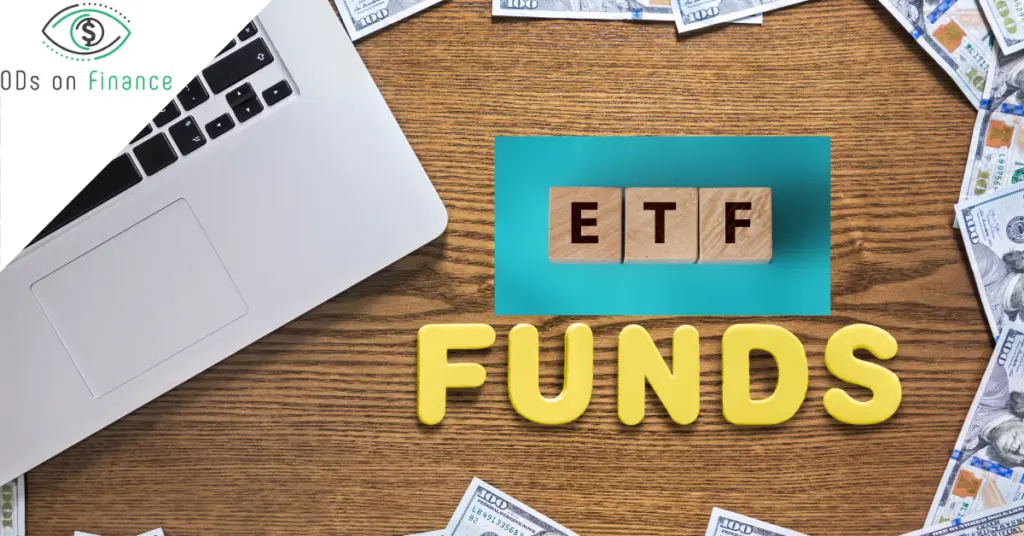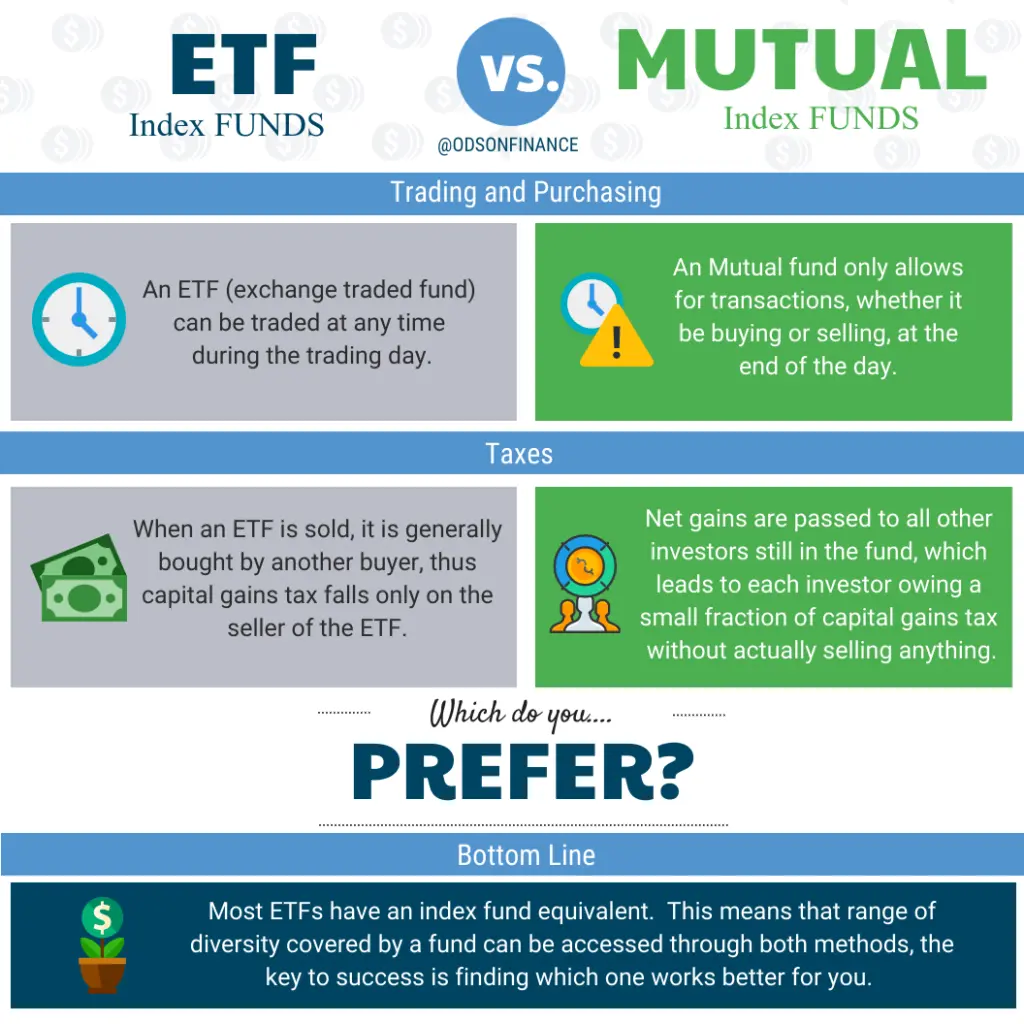ETFs vs. Mutual Funds

KEY POINTS:
-
(1) The differences between the ETF and mutual fund revolve around how they are purchased and traded, as well as the tax implications that each carries upon selling.
-
(2) An ETF (exchange traded fund) can be traded at any time during the trading day, while an index fund only allows for transactions, whether it be buying or selling, at the end of the day.
-
(3) When it comes to ETFs and mutual funds, the ETF holds a slight advantage
-
(4) When looking at investing in ETFs or mutual funds, make sure to consider low cost, broadly diversified index funds as a beneficial backbone to your portfolio.
Good evening ladies and gentlemen.
In the blue corner we have our reigning champion, the Index Mutual Fund, weighing in at a light 0.1% expense ratio and returning around 7%. In the red corner, we have our challenger, the ETF Index, weighing in at an equally light 0.1% expense ratio and returning nearly the same 7%. This should be a marquee matchup folks. A fight for the ages. What our champion the Index mutual Fund makes up in automation, our challenger, the ETF Index, matches with tradability. Let’s get ready to rumble!
Wouldn’t that be great if investing was as interesting as a pay-per-view UFC fight? Sadly, this is not the case. Investing is far more boring, and unless you give up a pretty penny, we don’t anticipate Joe Rogan will be providing color commentary on your trades and unrealized gains.
However, now that we have your attention with a cheesy two paragraph intro, let’s go through a two minute education on the difference between an ETF and a Mutual Fund, both of which can track an index like the S&P 500 Index.
The Differences
The differences between the ETF and index mutual fund revolve around how they are purchased and traded, as well as the tax implications that each carries upon selling.
Trading and Purchasing
An ETF (exchange traded fund) can be traded at any time during the trading day. The fund is bought in shares, much like buying an individual stock. Thus, ETFs allow for intraday trading, allowing a savvy investor to potentially buy low and sell high. Keep in mind that certain platforms may have fees for trading ETFs similar to fees for trading individual stocks. Also, remember that ETFs are bought and sold in shares. Many platforms do not allow for fractional sale purchases, which means that you will have to have a set amount of cash to purchase shares based on share price.
An index mutual fund only allows for transactions, whether it be buying or selling, at the end of the day. This essentially negates the possibility of intraday trading. Index funds normally have a minimum investment requirement (ex: many of Vanguard’s index funds require either a $3000 or $10,000 minimum initial investment). The benefit with index funds lies in that these funds do not have “shares.” Thus, this allows for any amount of money to be invested into the fund. Due to this benefit, investment into mutual index funds can be easily automated.
Taxes
Capital gains tax is an important thing to consider for every investor and trader. When it comes to ETFs and index funds, the ETF holds a slight advantage. Here’s why. When an ETF is sold, it is generally bought by another buyer, thus a one to one transaction happens which means that capital gains tax falls only on the seller of the ETF. When an index fund is sold however, the fund manager must sell individual securities in order to pay you a dollar amount. Thus if there is a gain in this sale, the net gains are passed to all other investors still in the fund, which leads to each investor owing a small fraction of capital gains tax without actually selling anything (keep in mind these are very small amounts).
The Similarities
Now that we know the differences between ETFs and index funds, what are the similarities? Well, most ETFs have an index mutual fund equivalent. This means that range of diversity covered by a fund can be accessed through both methods, the key to success is finding which one works better for you.
Do you prefer to buy shares and sell them over time, often in asynchronous fashion?
An ETF might better suit your investing strategy.
But, what if you prefer to be a strict DCA (dollar cost average) investor and invest a set amount of cash on the 1st and 16th of every month?
Then an index fund would probably work better for you.
When looking at investing in ETFs or index mutual funds, make sure to consider low cost, broadly diversified funds like the S&P 500 Index as a beneficial backbone to your portfolio. These investments will allow for solid long term returns that hedge risk relatively well and don’t give up too much in management fees.
Want to learn how to build your own portfolio? Check out The Optometrist's Guide to Investing 101
Want to get a full blueprint on How to start? Buy our Book The Optometrist's Guide to Financial Freedom


Facebook Comments